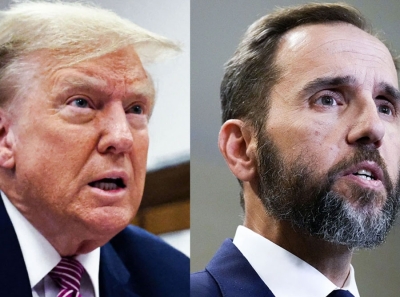EU leaders to discuss banking turbulences
EU heads of state and government meeting in Brussels on Friday (24 March) will discuss recent financial market turmoil, and while calls for deepening the Capital Markets Union and finalising the Banking Union are expected, decisions on specific measures are not.
European governments seem cautiously relieved about how EU banks have dodged the financial turbulences – at least for now.
“The situation is not comparable to the United States,” Belgian Prime Minister Alexander De Croo said, speaking to journalists on Thursday night (23 March), indicating that European banking regulation seemed to have prevented some of the risks from destabilising EU banks.
The collapse of the Silicon Valley Bank in the US and the fall and forced takeover of Credit Suisse have given new urgency to the debate that EU leaders are set to hold together with the president of the European Central Bank (ECB), Christine Lagarde.
Talking to members of the European Parliament earlier this week, Lagarde confirmed that European banks were currently well-capitalised and liquid, but she also called for a strict alignment of EU banking regulation to the international Basel III principles.

Bank crisis: ECB’s Lagarde wants complete application of Basel III
The EU banking sector “remained strong” amid market turmoil in the US, President of the European Central Bank (ECB) Christine Lagarde confirmed on Monday (20 March), adding that she wants to see the “complete application” of Basel III bank capital requirements.
The EU is currently reviewing the capital requirements for banks to align them with the Basel III principles. However, EU member states and the European Parliament tried to introduce exceptions to the rules in the past month, triggering criticism from the ECB for making the EU rules non-compliant with international standards.
The debate might now be relaunched with some members of the European Parliament (MEPs) calling for stricter adherence to the Basel III principles for bank capital requirements.
However, discussions are likely to stay more general during Friday’s meeting. “We don’t expect a very spectacular breakthrough,” one member state diplomat said.
An official from another member state said he expected to see a general call for working towards a Banking Union but doubted that any specific steps would be discussed in detail.
One of the big missing pieces for a real Banking Union is a fully-fledged European Deposit Insurance System (EDIS). If banking deposits were insured on a European level up to a certain amount, this would help level the playing field between banks based in smaller countries and banks in larger, financially more powerful countries. ,The additional security might also decrease the risk of bank runs.
However, EDIS is politically very controversial as it includes difficult questions of European solidarity. This is why the European leaders are unlikely to try finding an agreement on this and other politically fraught issues around the Banking Union.
Nevertheless, the leaders’ debate and the tense economic environment are putting the EU’s banking regulation back on the table and could foreshadow new regulatory activity in the coming months.

Subscribe to The Economy Brief
Subscribe to EURACTIV’s Economy Brief, where you’ll find the latest roundup of news about the European economy and about a variety of policy issues from workers’ rights over trade agreements to financial regulation.
Brought to you by János Allenbach-Ammann (@JanosAllAmm). …



